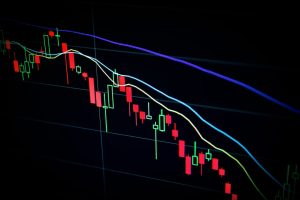Forex trading has become a popular way for individuals to make money from the comfort of their own homes. When it comes to forex trading, there are different ways that forex brokers can execute trades on behalf of their clients. One of these ways is trading directly in the market. In this article, we will explain the terminology associated with forex brokers trading directly in the market.
What is trading directly in the market?
Trading directly in the market, also known as Straight Through Processing (STP), is a method of executing forex trades where forex brokers directly place orders in the interbank market. This means that the trades are executed with liquidity providers, such as banks and other financial institutions, without the need for a dealing desk.
In other words, forex brokers act as intermediaries between their clients and the interbank market, taking orders submitted by clients and executing them directly in the market. This method of execution is fast and efficient, as there is no need for manual intervention by a dealing desk.
Terminology associated with trading directly in the market
1. Interbank market
The interbank market is a network of banks and financial institutions that trade with each other. This market is not accessible to retail traders, and only institutional traders, such as banks, hedge funds, and large corporations, have access to it. Forex brokers that trade directly in the market have access to this network of liquidity providers.
2. Liquidity providers
Liquidity providers are financial institutions that provide liquidity to the interbank market. These entities offer buy and sell prices for different currency pairs, and forex brokers that trade directly in the market can access these prices and execute trades on behalf of their clients.
3. Spreads
A spread is the difference between the bid price and the ask price of a currency pair. When a forex broker executes a trade directly in the market, there is usually a small spread that the broker charges the client. This spread is the primary way that forex brokers make money on trades.
4. Market depth
Market depth refers to the level of liquidity available for a particular currency pair in the interbank market. Forex brokers that trade directly in the market have access to market depth, which allows them to see the buy and sell prices available for different currency pairs.
5. Electronic Communication Network (ECN)
An Electronic Communication Network (ECN) is a type of trading platform that allows forex brokers to access the interbank market and execute trades directly with liquidity providers. ECN platforms offer transparent pricing and fast execution, making them a popular choice for forex traders.
Conclusion
Trading directly in the market is a popular method of executing forex trades, as it is fast and efficient. Forex brokers that trade directly in the market act as intermediaries between their clients and the interbank market, executing trades with liquidity providers. Understanding the terminology associated with this method of execution is essential for anyone looking to trade forex. By knowing the language used by forex brokers, traders can make informed decisions and maximize their profits.





